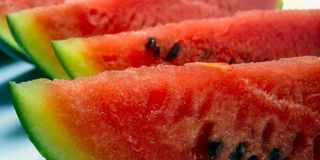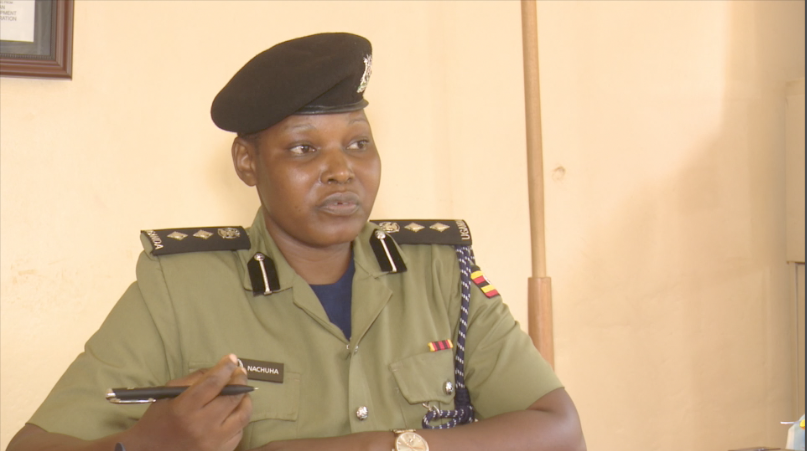Prime
Watermelon: The fruit grows well in the rainy season

Watermelons grow easily during the rainy season.
Watermelon is a fruit, green on the outside and red on the inside. Nomatter the kind of seed, Mr Abdu Karim Katumba, a watermelon vendor in Owino Market, says watermelons will look the same in colour.
He says there is the sugar baby watermelon, which also differs depending on the seeds that have been acquired and grown by the farmer. Some of the seeds are referred to as East Africa while others are referred to as Holland.
“The East African ones are small whereas the Holland ones are big. Usually, farmers grow both seeds,” Mr Katumba says.
This is because while the Holland ones grow to be big, they don’t sprout many watermelons as it is the case with the East African ones.
However, Mr Katumba argues that this trend only benefits the farmer. He says many buyers do not have a particular preference of what type they would want because they don’t know the difference. Sometimes, the bigger the better if they can afford it.
“Customers look out for watermelon that is value for their money. Many customers buy watermelon in terms of how much they can afford and then size matters later,” he says. So traders buy anything available and that is what they will offer to the final customer.
The price of a watermelon is largely dependent on the size. Ms Rehmah Nalongo, a fruits vendor at Mulago market, says she buys the smallest watermelon at Shs2,000 and sells it at Shs2,500 or Shs3,000.
She buys the big melon at Shs7,000 and sells it at Shs8, 000. Mr Katumba buys the small watermelon at Shs2,500 or Shs3,000 and sells it at Shs3,000 or Shs4,000.
Though the fruit has good market, Ms Nalongo says sometimes she is not lucky to sell off most of the fruits bought, so, she cuts it into pieces. This helps her sell off what she bought quickly, but then also it caters for those who can’t afford the whole fruit. She cuts pieces of different sizes which will cost between Shs300 and Shs2,000.
Ms Nalongo says the fruit takes up to three days before it rots away. However, Mr Katumba says it also depends on how the watermelon was looked after in the garden.
“If it was well looked from the time of planting up when it is harvested, then the watermelon will remain as fresh for even two to three weeks,” he explains.
Nalongo confesses that she doesn’t know exactly where the fruit is grown. Mr Katumba is reluctant to mention any place because he argues that the fruit is grown in most parts of the country. However, he says it is grown in Mayuge, Bugerere, Masaka, Mubende, Masindi, Bushenyi and Busoga area.
Currently, the fruit is less on the market and that is because it is not in season. Nalongo says its season is August, but Mr Katumba disagrees and says just like many other fruits, the watermelon is in plenty in the rainy season.




